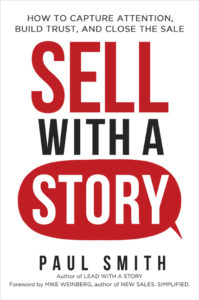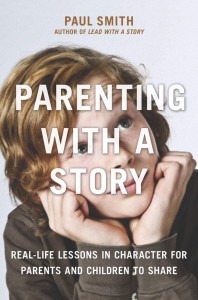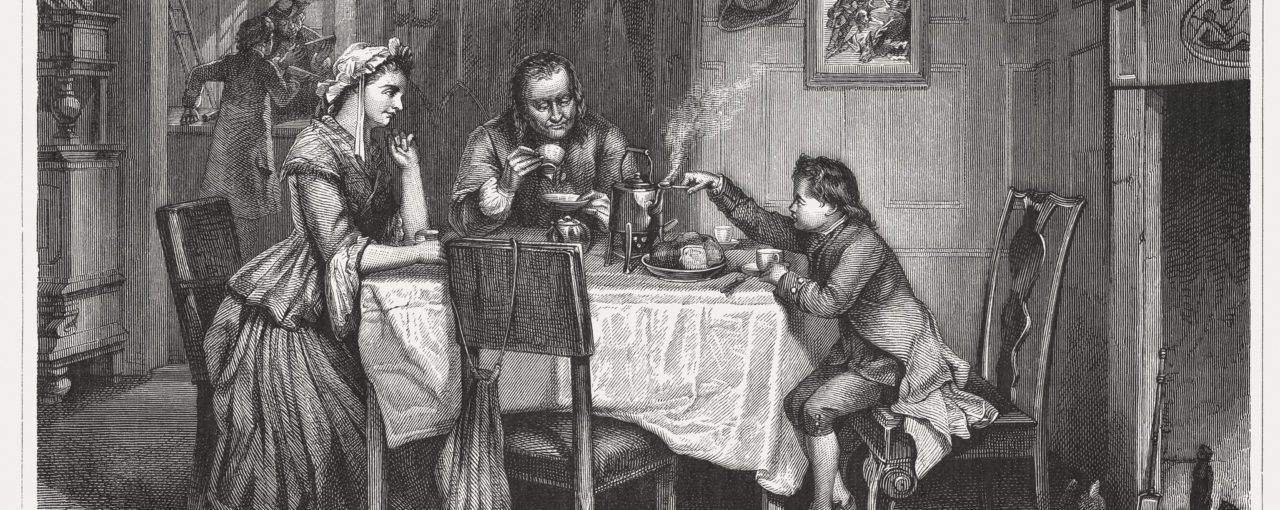Podcast: Play in new window | Download | Embed
Subscribe: RSS
Podcast (parenting-with-a-story-podcast-series): Play in new window | Download | Embed
Subscribe: RSS
 One day, nine-year-old James was in the kitchen with his mom’s sister. Well, while Auntie was sitting at the table having a cup of tea, James was standing at the stove watching the tea kettle boil.
One day, nine-year-old James was in the kitchen with his mom’s sister. Well, while Auntie was sitting at the table having a cup of tea, James was standing at the stove watching the tea kettle boil.
And he was just fascinated with it. He watched as the steam came out of the top of the kettle, and he held a spoon up into the jet of steam and watched as little drops of water condensed and ran down the spoon and dripped into a little cup. He just watched that cycle go over and over and over, just fascinated with it.
Well, eventually his Aunt just got frustrated with his laziness and barked at him, saying something like, “James, I’ve never seen such an idle boy! Go ride your bike, read a book, or do your homework. Aren’t you ashamed of yourself just wasting your time like this?”
Fortunately, young James was undaunted by his Aunt’s admonition. Because 20 years later, at the age of 29, and in the year 1765, James Watt reinvented the steam engine, ushering in the Industrial Revolution that we, of course, all benefit from today, and all based on a fascination with steam that he developed at the age of 9 in the kitchen.
How bad would it have been if that, and his other fits of “laziness” watching steam, had been squelched out of him by his parents or family? Just because your child doesn’t look like they’re working hard, doesn’t mean they’re not doing something important.
William Bennett, the former Secretary of Education, once observed,
The opposite of work is not leisure or play or having fun, but idleness—not investing ourselves in anything.”
Be careful not to discourage play. Discourage idleness. And for the record, watching TV is usually not play.
As with all of these stories, I encourage you to share this with your kids, and then have a discussion about it. Here are some questions to get you started.
- What do you think would have happened if James Watt’s aunt had kept him from ever playing with the tea kettle?
- Have you ever created anything interesting after just playing around with something?
- When do you think you’re most creative? In the morning? At night? When you’re bored? When you’re super busy?
- When are some times when it’s important to be serious and not play?
Use these links to subscribe to this podcast on iTunes or Stitcher, or Podbean.
Source: Parenting with a Story: Real-life Lessons in Character for Parents and Children to Share, by Paul Smith.
—
 Paul Smith is one of the world’s leading experts on business storytelling. He’s a keynote speaker, storytelling coach, and bestselling author of the books Lead with a Story, Parenting with a Story, and Sell with a Story.
Paul Smith is one of the world’s leading experts on business storytelling. He’s a keynote speaker, storytelling coach, and bestselling author of the books Lead with a Story, Parenting with a Story, and Sell with a Story.


 Connect with him via email here.
Connect with him via email here.
Follow him on Facebook, LinkedIn, Twitter, and Instagram.
Sign up for his newsletter here to get one new story a week delivered to your inbox.

